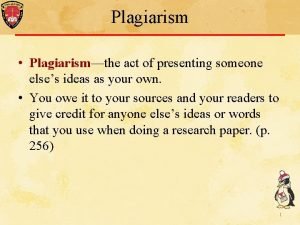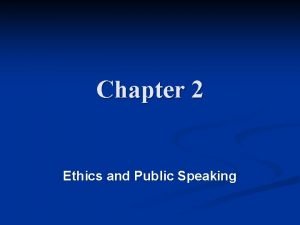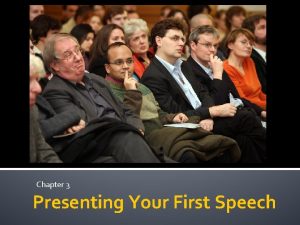Oral Language Presenting your Oral Report In this






- Slides: 6

Oral Language: Presenting your Oral Report

In this lesson, I would like you to present one of the projects you completed to someone at home. If you haven’t completed a project yet, then present an oral book or film review.

Structure of your oral report: If you are presenting a project: - Before you start to present, make sure that you are familiar with the information in your project and do a practice run yourself. 1. Welcome your audience and thank them for coming. 2. Introduce yourself (this might seem silly in front of your family but it is good practice!) 3. Tell your audience what the purpose of your oral report is (e. g. “I am here today to tell you all about Manchester United football club”). 4. Provide some information on the main points of your topic. Remember, you are presenting a project, not reading a story. Don’t read directly from your project, speak to your audience about the most important points. 5. When you have finished presenting your project, summarise what you spoke about (e. g. “This concludes my project on KPop. I hope you enjoyed hearing about the history and features of this beloved music genre. ”) 6. Give your audience a chance to ask you any questions and answer these as best you can. 7. Thank your audience for listening.

Structure of your oral report: If you are presenting a report on a book or film: - Before you start to present, make sure that you are familiar with the book/film and do a practice run yourself. 1. Welcome your audience and thank them for coming. 2. Introduce yourself (this might seem silly in front of your family but it is good practice!) 3. Tell your audience what the purpose of your oral report is (e. g. “I am here today to tell you all about my favourite book, The Boy in the Striped Pyjamas”). 4. Provide some information on the main points of your book/film, e. g. the author/actors, the year it was released, the main plot, how many stars you would give it and why. 5. When you have finished presenting book/ film report, summarise what you spoke about (e. g. “This concludes my project on Mary Poppins. I hope you enjoyed hearing about my views on this wonderful film. ”) 6. Give your audience a chance to ask you any questions and answer these as best you can. 7. Thank your audience for listening.

Have a look at this video giving some pointers on oral reports: If you’re having trouble viewing the video, search ‘Tips on giving oral presentations’ on You. Tube. It is the first video that comes up.

Assessment When you are finished your oral report, ask your audience these questions so that you can assess your work: 1. Did I greet the audience? 2. Did I introduce myself? 3. Did I introduce my topic? 4. Did I talk about the main points of my topic? 5. Did I summarise my report at the end? 6. Did I give my audience a chance to ask questions, and did I answer these? 7. Did I thank my audience for listening? 8. Did I keep maintain good body language (e. g. eye contact, facing the audience)? 9. Did I speak at a good volume and pace (speed)? 10. Did I present my oral report rather than just reading from a project? 11. Did I seem interested in my topic? If they answer ‘yes’ to most of the questions above, well done! If not, don’t worry. Now you know what to work on. You will have a chance next week to present another oral report.











